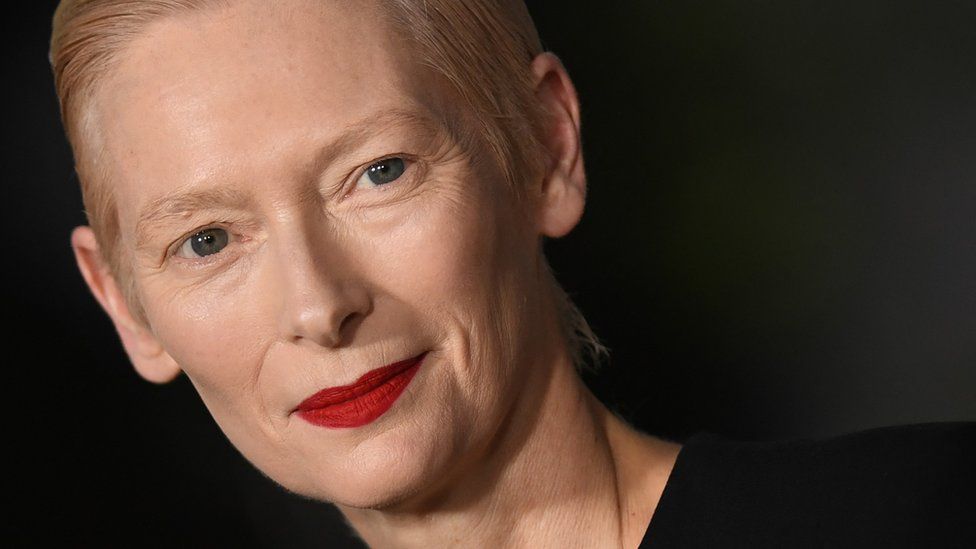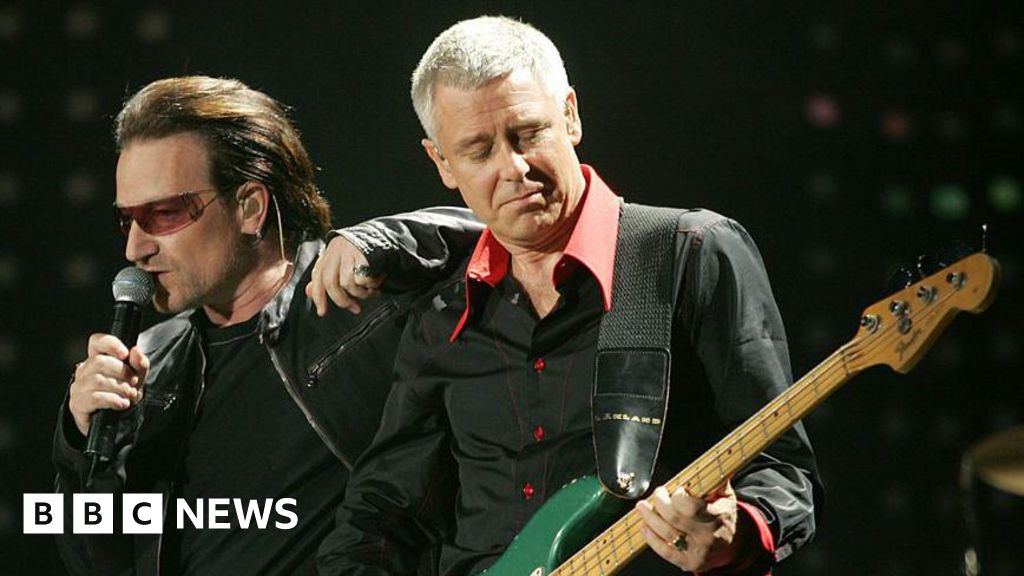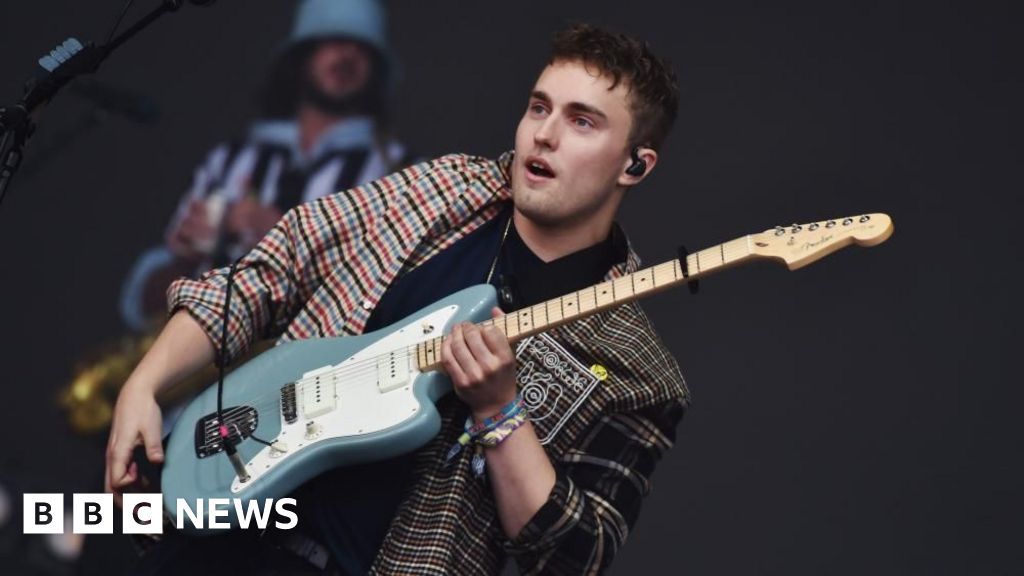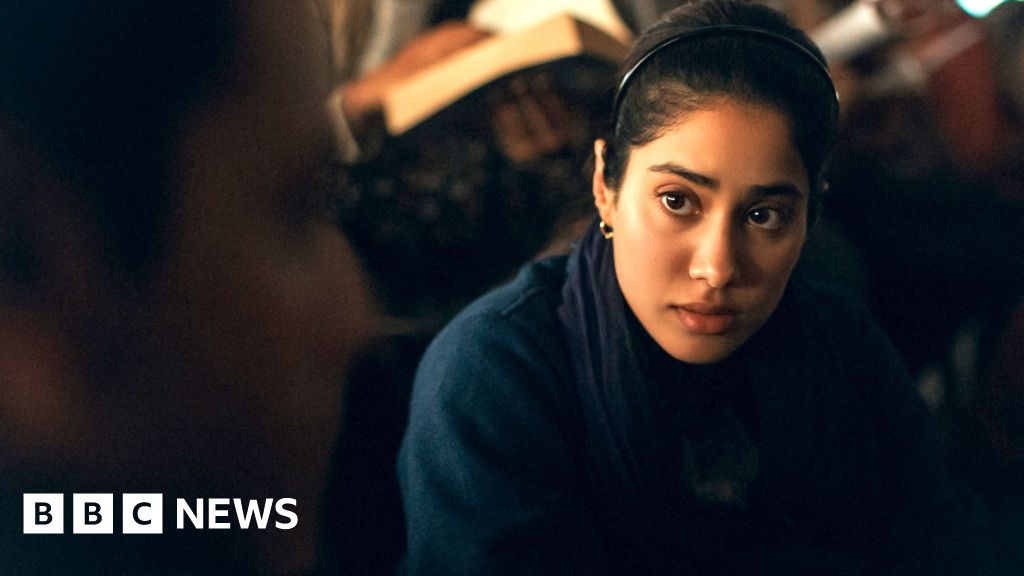ARTICLE AD BOX
 Image source, Getty Images
Image source, Getty Images
By Pauline McLean
BBC Scotland arts correspondent
Tilda Swinton can remember vividly her first cinema experience, as a child in London in the 1960s.
She used to go to the newsreels cinema at the Cameo Royal in Charing Cross Station.
"It was packed with emotion for my brothers and me," she says.
"It was where as children we caught the trains that took us to our boarding schools. The ritual was that tickets were bought, luggage was checked and we went to the pictures.
"It was a sort of sweetener. But it was also a haven, a sanctuary and a safe place."
Today, she's internationally known as an actor and as a film maker. She won an Oscar for her role in Michael Clayton, as well as a string of awards for a range of roles across independent films like Grand Budapest Hotel and Marvel movies like Doctor Strange and Avengers: Endgame.
But it's lesser-known work which has earned her the latest honour.
She received the annual award from the International Federation of Film Archives, a global organisation dedicated to the preservation of moving image heritage.
Swinton was recognised for her work on the preservation and promotion of archive film, film history and women's role in it.
Past winners of the award have included Ingmar Bergman, Mike Leigh and Geraldine Chaplin.
Swinton, who tries to visit archives wherever she's filming, was presented with the award at a ceremony in Glasgow.
"It's difficult to describe what an honour this is," she said.
"I admire this body so much, not just as a film maker but as a film fan. We can't imagine new films without valuing old films."
Film archive became an early passion, thanks to the film maker Derek Jarman. He cast her in Caravaggio in 1986, just as she was about to give up acting.
"I was never interested in acting or being an actor, but I was really interested in cinema," she told me.
"When I started out, in London, it was either television or cinema. It was all really big cinema, David Lean or big costume dramas by Merchant Ivory, and I knew I wasn't interested in working in that world.
"But Derek used a super eight camera. He pulled together a lot of young people like me, it was like a school.
"We weren't frightened of film making. It was very simple. You didn't need big budgets or big names. It was a practical business.
"That was an important start for me and I've been following my nose ever since."
Image source, Getty Images
Image caption,Swinton says she would not be an actor if she had not met Derek Jarman
After Jarman's death from AIDS in 1994, she collaborated on a film with Isaac Julien, which used his archive to tell his story.
Two years ago, she spearheaded a campaign to raise £3m to buy Jarman's cottage in Dungeness and turn it into an artists' residency.
"If I hadn't met Derek, I wouldn't be performing and I'd probably have a job in an archive like this," added Swinton.
"I'd be making the tea for them. It's work I value."
She still lives in Nairn, between film projects. She and her frequent collaborator, the film maker Mark Cousins, once dragged a mobile cinema across the Highlands in a bid to bring films to as many local communities as possible.
"It was a bit of an experiment, dragging this cinema alongside Loch Ness, through glens and towns. Bringing a programme of rare old foreign films, the sort you wouldn't necessarily watch on television. I'd like to do it again."
Cinemas have been hit hard by the pandemic, and now the cost of living.
Rising bills and falling ticket sales have already forced some businesses, including the Filmhouse in Edinburgh and the Belmont in Aberdeen, into administration.
"One good thing about the pandemic was that it reminded the world of what was important," she said.
"They missed friends and family, travel, live music and going to the pictures. Even though they could watch television round the clock at home.
"The cost of living crisis is a different thing and we have to think very seriously about that. It's not a luxury, it's important to our culture and it's important to our mental health."
She said cinemas were still needed.
"We need big screens - or small ones - and good sound systems," she said.
"The village I live in used to have two cinemas. A tiny village, but it had two cinemas. Most towns had at least two cinemas and a cultural vibrancy.
Image source, Getty Images
"It isn't lost, but we have to be careful that we keep going to the pictures. It's not just about streaming.
"You might love watching a film at the end of your bed, and that's fine. One can do both."
She also believes that the Edinburgh International Film Festival, of which she is a patron, can survive.
"Honestly? In the long-term I'm not worried. Edinburgh International Film Festival is such a living spirit and such an old cultural force for good.
"We're in a tight spot but people are rallying and we're going to find solutions.
"We may have to project films against outside walls, or drag a mobile cinema around but there's no question in my mind.
"The Edinburgh International Film Festival will just have to transform for the time being and eventually land in a new incarnation."
Related Internet Links
The BBC is not responsible for the content of external sites.

 2 years ago
57
2 years ago
57








 English (US) ·
English (US) ·